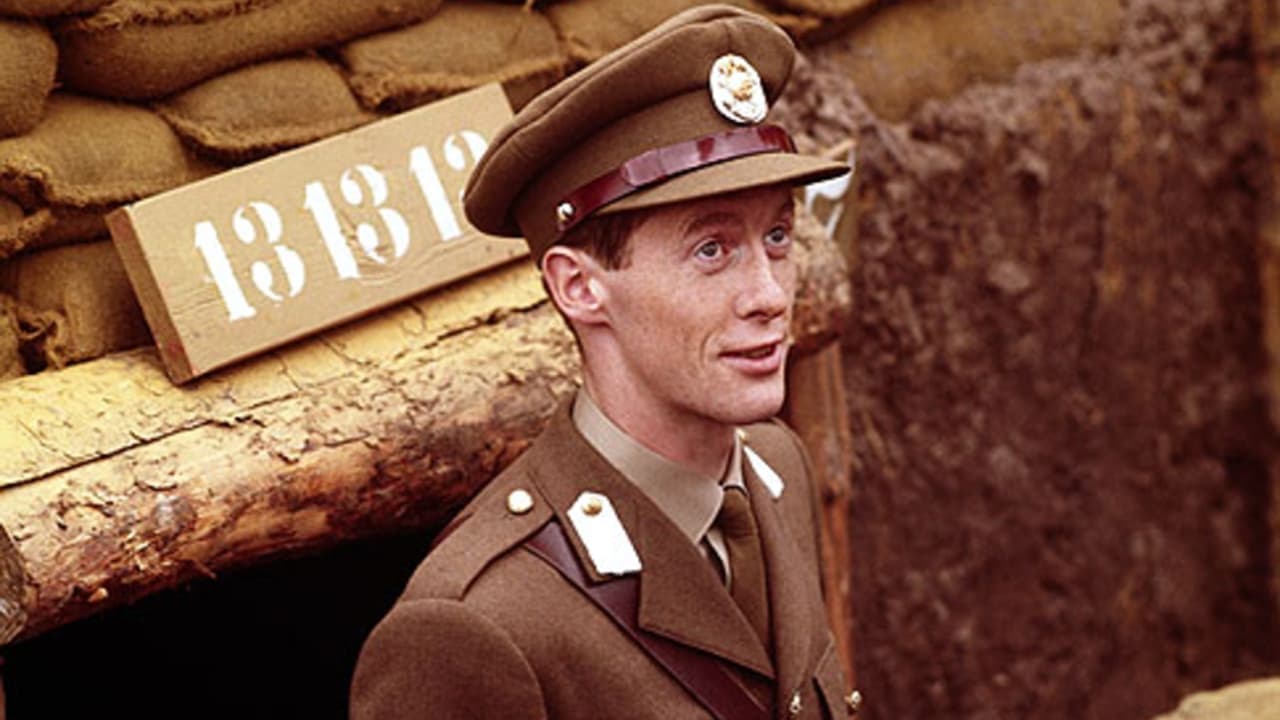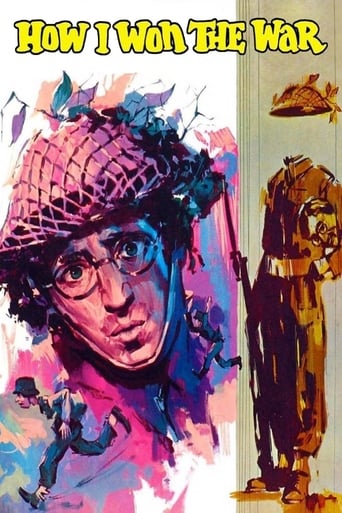

I'm sure I missed a lot of the nuance of this film because of the language barrier - it was in English, without subtitles. I picked it up in a dollar bargain bin almost a year ago because John Lennon's picture was on the video sleeve. Though others on this board state that he stole the show, I came away with the impression that his supporting role was more in the way of capitalizing on his Beatles celebrity. Yet his death scene turns out to be unusually prophetic and surreal, and one of the ironic twists of the story.I don't know anything about the other principals involved in the movie, including director Richard Lester. However there's no denying that the absurdity of war theme comes through in virtually every scene. I would liked to have been 'in' on more of the Brit humor involved, and perhaps a second viewing might help fill in some of the blanks. I'd like to thank poster 'Phlicker' for explaining the symbolism of the pastel soldiers who kept popping up, even though it should have been readily apparent. I guess even the British visuals are difficult to understand.You know what really blew me away though? Doing the math on the film's release, it's forty years old this year! FORTY YEARS! For me, that might be the most surreal aspect of the picture, having grown up as a teenager with the Beatles and John Lennon. Just as surreal is the fact that Lennon was shot to death almost twenty seven years ago as I write this. The insanity and absurdity of war and death continues every day, and humanity learns nothing from it.
... View MoreThis challenging film is in a class all of its own. It's as if Samuel Beckett had written a screenplay filling it with low slapstick and very smart commentary. Lester's ultimate point seems to be that war is merely just an extension of class war. Michael Crawford is excellent as the clueless, Bertie Woosteresque squad commander; always trying to piece things together with a seemingly high class education that does him absolutely no good in the thick of war's irrationality. The fast-paced gags come in rapid succession, punctuating each working class soldier's senseless death with great comic absurdity. And yet, armed with his upper class and horribly thoughtless "sacrifice for King and country" paradigm, Lt. Goodbody forges ahead on a completely senseless mission inadvertently causing the deaths of all of his men. It's perfect that in the end the only person he can relate to is his German upper-class captor. His ultimate "winning" of the war by simply purchasing the only bridge left crossing the Rhein (with a bad check, no less) is the perfect metaphor for the film's main idea; that it's not even money that separates the classes - it's just the collective illusion of the classes that separates them. And it's this illusion for which the working class are forced to fight and die.A fantastic piece of anti-war theatre.
... View MoreI saw this film on FLIX today (20 March 2006) for the second time, and appreciated it a lot more than I did when I first saw this in Syracuse, NY around 1981 or so. Not only do I see a parody of war films (such as Lawrence of Arabia, whose theme is used), but it seems oddly appropriate for America in 2006. By that, not only do I refer to the war in Iraq, but also the corporate mentality that pervades many quarters.John Lennon does steal the movie! Indeed, he had a better chance than Elvis Presley did when it came to a movie career, but Mr. Lennon declined the chance to do so. The rest of the cast is fine, particularly Michael Crawford, Roy Kinnear and Alexander Knox as the US General. This is one brave and prophetic piece of film-making.
... View MoreIt has been reviewed; it has been explained. For almost forty years now this movie has been a mystery to a vast audience because the viewers and reviewers miss the obvious: "How I Won The Won" is comedy. When one has the opportunity to enjoy this movie one will find that the director and writer worked well together to bring us a movie that one can enjoy again and again. Much like "Duck Soup" thirty-four years earlier made a mockery of the Great War, "How I Won The War" mocks the "good" War (The Second World War.) Richard Lester's directing style brings this movie to his audience in a similar way that Brecht brought "The Three Penny Opera" to his stage audience. Lester has an ability to force you to laugh at times when you wished you hadn't laughed. Now circa 2005, it is a movie that has been re-discovered for its vitality and its humor. Let yourself go, relax and enjoy a classic movie experience.
... View More